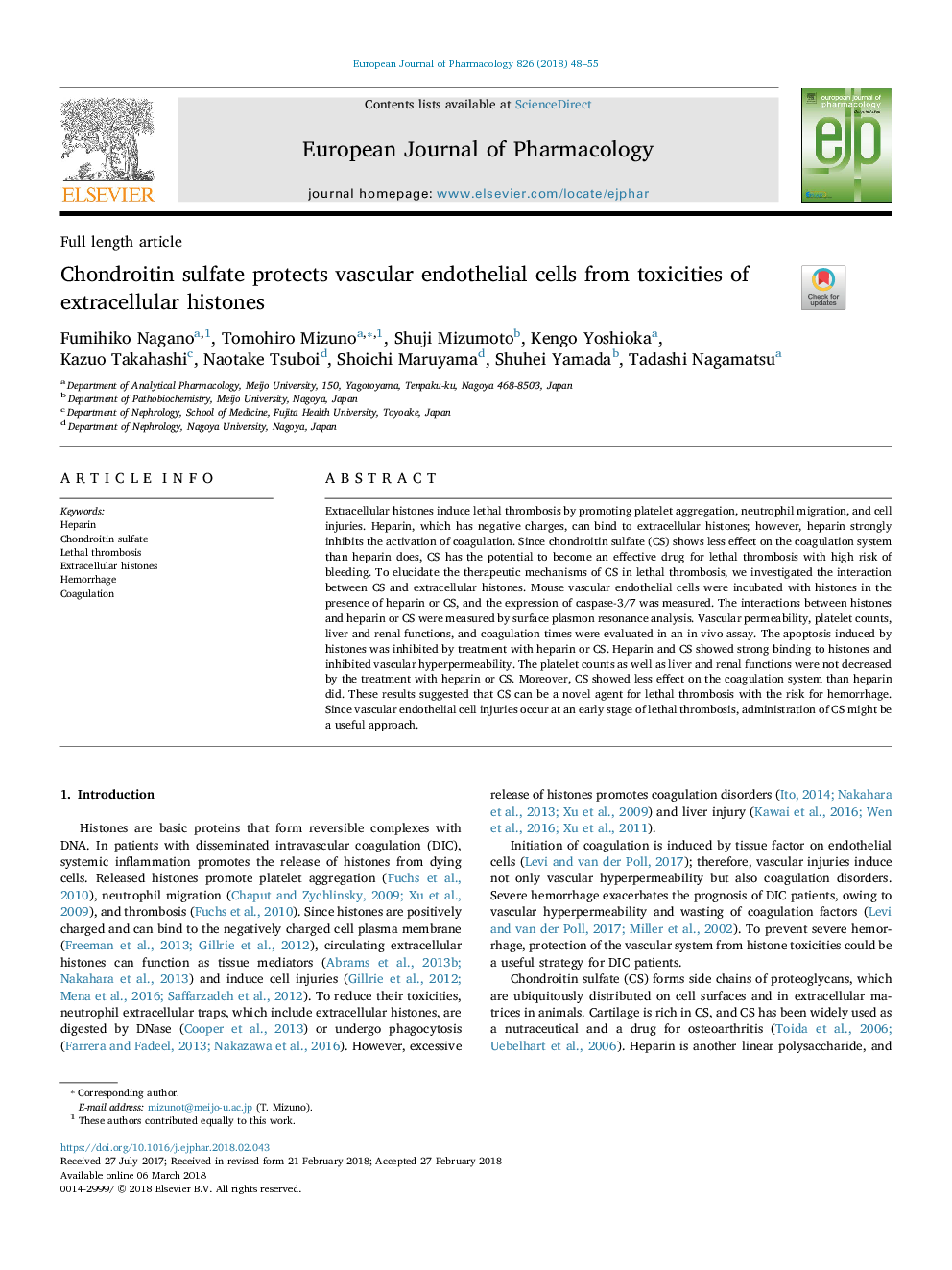ترجمه فارسی عنوان مقاله
مقاله کامل طولانی سدیم سلولهای اندوتلیال عروقی از سمیت هیستون های خارج سلولی محافظت می کند
عنوان انگلیسی
Full length articleChondroitin sulfate protects vascular endothelial cells from toxicities of extracellular histones
| کد مقاله | سال انتشار | تعداد صفحات مقاله انگلیسی |
|---|---|---|
| 158268 | 2018 | 8 صفحه PDF |
منبع

Publisher : Elsevier - Science Direct (الزویر - ساینس دایرکت)
Journal : European Journal of Pharmacology, Volume 826, 5 May 2018, Pages 48-55
ترجمه کلمات کلیدی
هپارین کندرویتین سولفات، ترومبوز مرگبار، هیستونهای غیر سلولی، خونریزی انعقاد،
کلمات کلیدی انگلیسی
Heparin; Chondroitin sulfate; Lethal thrombosis; Extracellular histones; Hemorrhage; Coagulation;

